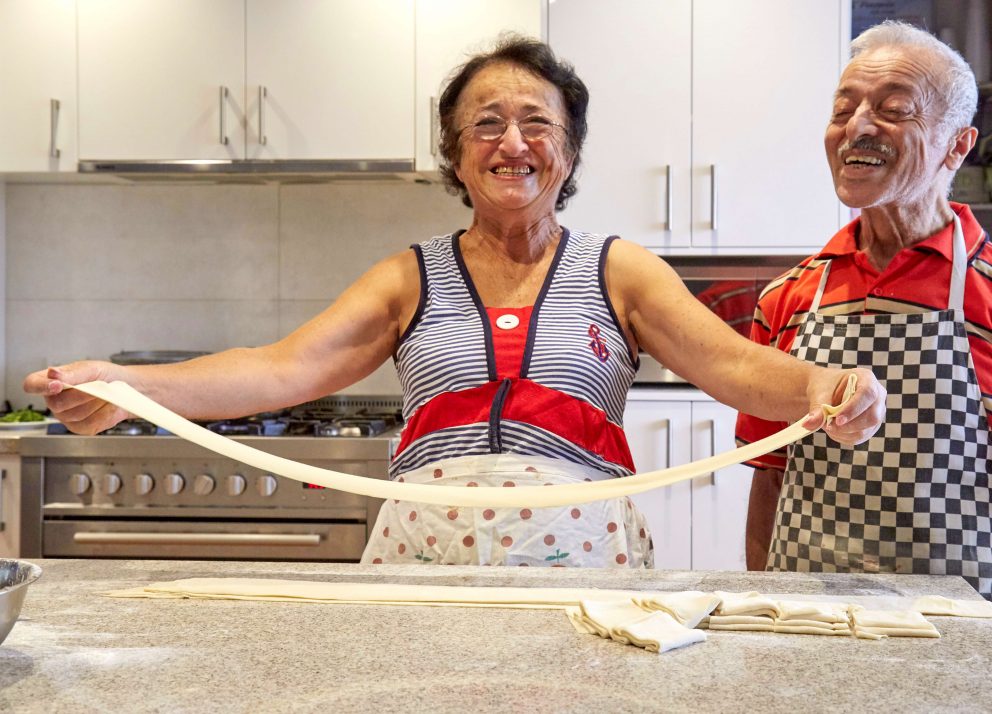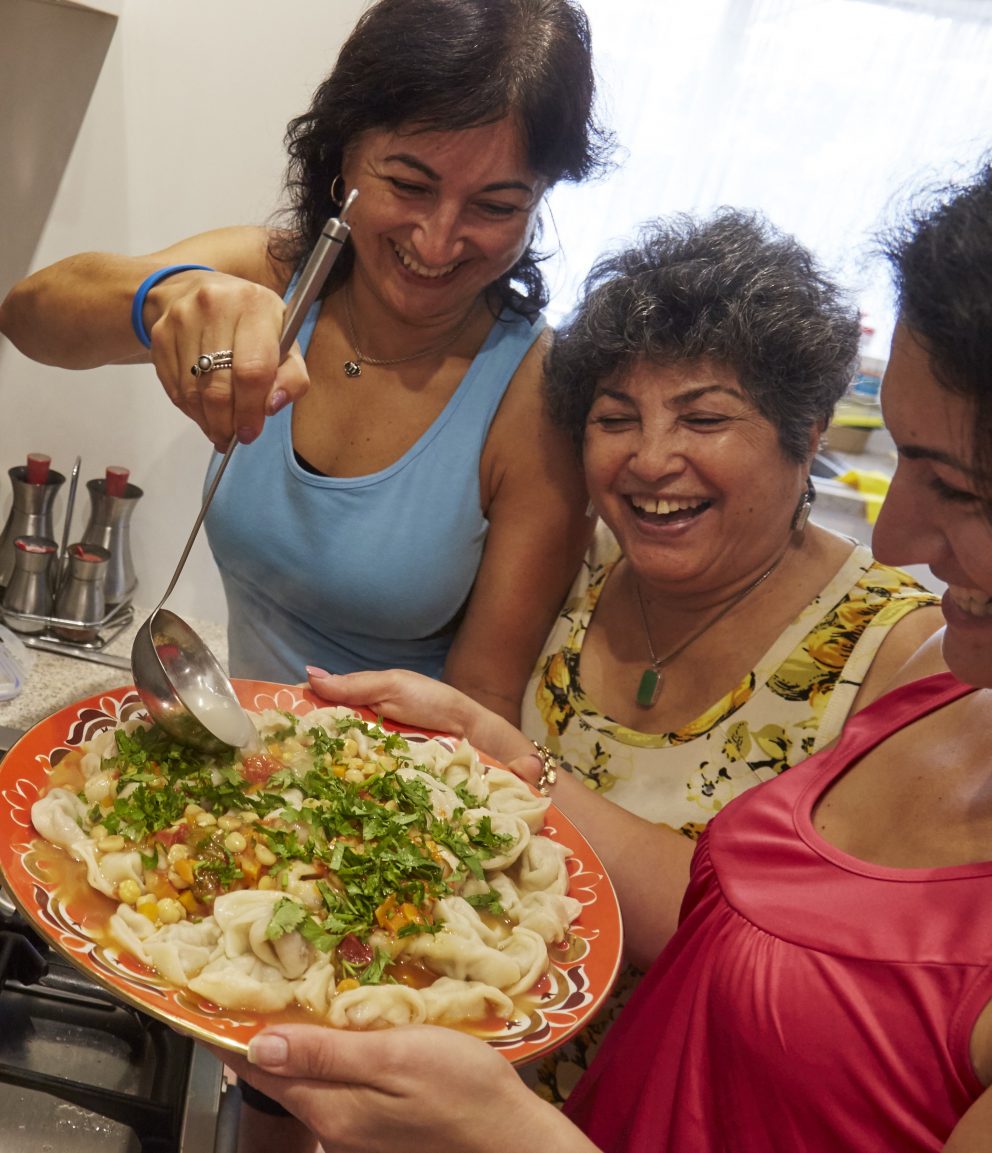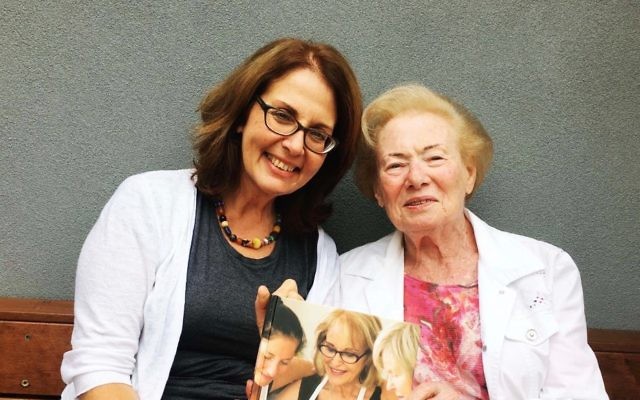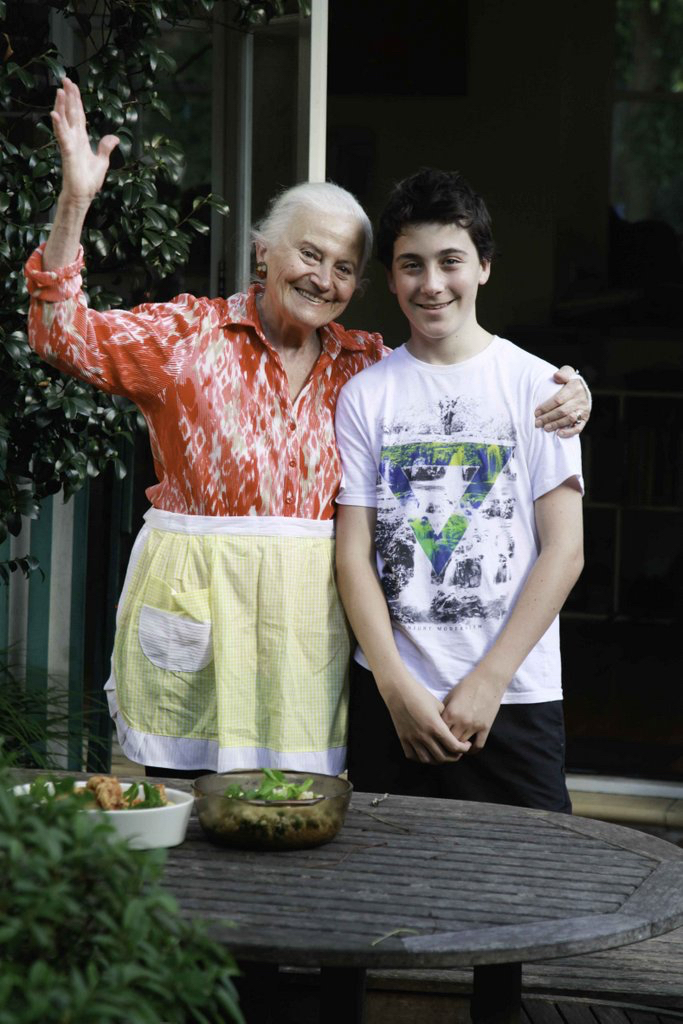Cooking with love
Irris Makler’s soon-to-be released cookbook, Just Add Love, will have you planning your next dinner party in no time. But the inspiring stories woven throughout make Makler’s work much more than your average cookbook.
Irris Makler’s soon-to-be released cookbook, Just Add Love, will have you planning your next dinner party in no time. But the inspiring stories woven throughout make Makler’s work much more than your average cookbook. Sophie Deutsch reports.
OFTEN, the most prized family heirlooms are the ones with no price tag attached.
They warm the body and feed the soul, and stay imprinted in our hearts and minds.
Even if lost or destroyed, these cherished possessions are rarely forgotten.
In the heart of the family home, the precious recipes of Holocaust survivors patiently sit, waiting to be used, torn, spilled on, loved and dripped on before being passed on.

Over the past four years, journalist and author Irris Makler, a former Sydney local now residing in Jerusalem, has been photographing and interviewing survivors as they prepare traditional family specialities with their sous chefs – the beloved grandchildren – by their sides.
The culmination of hours upon hours spent in kitchen after kitchen has come together in Makler’s latest book, Just Add Love: Holocaust Survivors Share Their Stories and Recipes, which will be launched at upcoming events in Sydney, Canberra and Melbourne.
This Sunday afternoon (March 31), a pre-launch event at the National Council of Jewish Women of Australia (NSW) will see Makler in conversation with leading Australian journalist Geraldine Doogue.
 In Makler’s book, there is a diverse collection of survivors’ recipes – matzah balls, challah, dumplings, labne, chocolate, walnut and sour cherry cake, babka and more.
In Makler’s book, there is a diverse collection of survivors’ recipes – matzah balls, challah, dumplings, labne, chocolate, walnut and sour cherry cake, babka and more.
One particular item – rich, dense and delicious honey cake – is especially close to Makler’s heart.
After her grandmother passed away, Makler began the difficult task of tracking down the recipe for her grandmother’s adored honey cake.
“I had a sensitivity to this subject because in my family, we didn’t write down my grandmother’s recipes,” explains Makler. “As part of my mourning for her, I would be baking, cooking and trying to recreate her honey cake.”
Additional inspiration for Makler’s project came from watching a close friend’s mother, Sydney Holocaust survivor Eva Grinston, prepare dishes from a worn cookbook, riddled with rich history, tragedy, love, tradition, and of course, flavoursome recipes harking back to her childhood days growing up in Bratislava, Slovakia.
After enduring the horrors of Auschwitz and losing her mother, sister and aunt, Grinston returned home where she came across a dusty old cookbook belonging to her grandmother.
Reminding her of home when little else did, the book represents Grinston’s unbreakable connection to those she lost, offering a vehicle by which to keep their memory alive and continue family traditions.
“When she told me the story of that cookbook, I was overwhelmed and I thought, ‘I have to do something with this’,” says Makler. “She cooks the things she knows from home, and she makes them for her grandchildren. Her grandmother’s favourite cake is on the table at every birthday for her grandchildren in Australia.”

With the wheels for her project set in motion, Makler began collecting Polish, Hungarian, Libyan and Central Asian recipes.
Some are familiar to us all – like matzah ball soup and rissoles, while others may be lesser known but are no less delicious.
“I wanted an array of nationalities because I wanted an array of experience, and I wanted an array of cuisine,” explains Makler. “There are stories that I didn’t know about or think about. I knew there were big battles in Libya during World War II, but I didn’t think what that meant for the Jews of Tripoli. There were whole stories that I hadn’t known, and cuisines that I only now know.”
But Makler’s book offers much more than a carefully arranged series of delectable recipes. She takes readers on a journey into the past with stories of triumph and tribulation, resilience and passion, and the power of the family bond permeates through it all.
Heartwarming images depict grandparents bustling about the kitchen, with their grandkids lending a helping hand as they learn the way of the kitchen and the way of the world.
 It turns out that cooking, as Makler discovered, strengthens the intergenerational bond, prompting grandparents to let down their guard and reveal, decades after a trauma occurred, the atrocities they endured.
It turns out that cooking, as Makler discovered, strengthens the intergenerational bond, prompting grandparents to let down their guard and reveal, decades after a trauma occurred, the atrocities they endured.
“I decided from the start to have the grandchildren because I wanted that continuity, but it was only when I was going through the project that I actually understood how much that is a feature – [to share] with the generation beneath,” Makler remarks.
“You don’t tell your children [what you experienced] because you don’t want it to destroy their upbringing, you want them to have a clean upbringing free of all that, but by the time your children have children you can relax a bit.”
Just as the grandchildren were taught lessons from their grandparents, Makler learnt volumes about the women she interviewed. She learnt of their resilience, adaptability and perseverance, and this ability to see light in the midst of witnessing great adversity seems characteristic of Makler’s disposition too.
As a foreign correspondent currently based in Jerusalem, and previously reporting from London, Moscow and Baghdad, Makler has seen the harsh realities of humankind in the throes of bitter warfare.
“It’s hard work, it’s dangerous work, it’s demanding, it’s gruelling, it’s often hot – that Middle Eastern heat,” she says, emphasising that her current project has been both an “oasis and an escape” from her usual day-to-day work.
“You just can’t describe the different demands of seeing so much hatred, grief, violence, as well the danger to yourself. In a way this has been restorative because these are women who have been through, in a way, what many of the people I’ve interviewed are going through, and they’ve recovered, built new lives and they cook for their families.”
Even when survivors pass on, their recipes – bequeathed to the next generations with love and care – guarantee their survival and enduring legacy.
“Having a house, having a kitchen to cook in, is a sign that you are surviving, and being able to cook the dishes from home reminds you of your identity and it means you can pass that identity on. That’s true of Italian migrants, Vietnamese migrants and Lebanese migrants,” Makler comments. “It’s certainly true of Jewish migrants.”
And from where it all began, Makler’s initial goal of finding her grandmother’s honey cake recipe has almost been realised. In Saba Feniger’s recipe, Makler believes she has found the closest thing yet to her grandmother’s version.
The pre-launch event is on Sunday, March 31 at 2.30pm. RSVP: (02) 9363 0257 or admin@ncjwnsw.org. The official launch is on Sunday, May 5 at Woollahra Library at 2pm. Bookings: shalom.edu.au/event/. Pre-order the book at justaddlove.net.au/buy-book/my-book.
SOPHIE DEUTSCH



comments